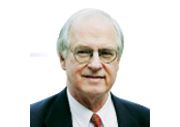A boxer’s ‘forgotten war’
You know how little the Korean War weighs on the consciousness of American readers when you see a documentary and read an entire book about a famous American boxer and his epic battle with his Korean challenger and find virtually no mention of the “forgotten war.”
That omission in “The Good Son,” the title of both the book and the documentary, may not matter to most Americans and many Koreans, but the Korean War did have a lot to do with the origins of Kim Deuk-koo. Kim was slugged to death nearly 30 years ago in the 14th round of a battle in Las Vegas to wrest the light heavyweight championship from Ray “Boom Boom” Mancini, protagonist in the 316-page book by Mark Kriegel and the 80-minute documentary, timed for the anniversary of the fight in November.
About midway into the book we get this image of this incredibly tough Korean street kid, a survivor of a virus that killed his father at the age of two and of conflict-ridden homes and fights with bullies and training as hard as only the Koreans can make it.
When it comes to the Korean War that ended two years before Kim’s birth in 1955, however, we are told that his family, “like many Korean families in the 1950s, had been fractured by the civil conflict.”
Right, somehow the author does not seem to want to call this “conflict” that killed 4 million, North and South Koreans, military and civilians, not to mention Chinese, Americans, Brits and assorted others, “the Korean War.”
The book’s lone reference to the Korean War by name comes when Kim’s fiance, mother of the son born seven months after he died in the ring, says her own father “had fled from the north during the Korean War and experienced much hardship.” And yes, we’re also told Kim’s stepfather spent “years imprisoned in North Korea” ― as a prisoner of war, as a political prisoner, who knows? ― before returning home to discover his wife, Kim’s mother, with another man.
How really did the Korean War play into their lives? There’s no telling if Kim’s father or stepfather or father-in-law were in the South Korean Army. Considering what they’d all been through, however, we may be sure the war influenced him growing up.
Did the topic of that war seem too inconsequential for the author to ask about it, much less attempt answers? Or was it that Americans, having “forgotten” the Korean War, don’t want to have to think about it?
Whatever, omission of the Korean War in “The Good Son” contrasts with repeated mentions of the service in World War II of Mancini’s father, Lenny “Boom Boom” Mancini. “Boom,” as he was known, was a lightweight contender until he was drafted and severely wounded in France.
Again and again we’re told “Boom” set an example for ”Boom Boom” as the “good son” pored over frayed clippings of stories about his father’s pre-war fights. Ray worshipped the father as he fought for the crown for which the old man was never able to fight.
Maybe the hidden message here is that World War II for Americans was “the good war” and later wars not good. So irrelevant is military service since then, we’re not even told if Kim was drafted into the Korean Army. Three years’ military duty may explain, however, why he didn’t show up at Seoul’s Dong Ah Gym until he was 22.
Ray Mancini, of course, never had to serve. Born in 1961, he was not quite a teenager when the U.S. threw in the towel in Vietnam in 1973, did away with the draft and pulled out its last forces two years before the North Vietnamese stormed to victory in 1975.
In fact, the author also overlooks the Vietnam War. The book and the documentary provide atmospherics about the communal lives of factory workers and their families in Ray’s hometown of Youngstown, Ohio. We get an inedible portrayal of the agony inflicted by the closing of the steel plants in the 1970s and of Ray’s rise to fame as a champion holding a light of hope for suffering people.
We hear nothing, though, of young men called to service as Ray was a kid. His brother, Lenny, a petty gangster who was shot in the head by a girlfriend, would have been old enough to be drafted but we have no idea why or how he avoided that fate.
Industrial cities like Youngstown produced some of America’s toughest fighters. I ran into many soldiers in Vietnam like the people described in the book and documentary. Veterans had to have been coming home and talking about Vietnam in the bars where Ray’s father hung out. A number were killed or wounded. If Youngstown was anything like other American cities, anti-war protesters took to the streets – though maybe not as loudly as elsewhere.
There’s no word here, though, on what the Mancini family thought about any of this – no clue as to whether they even knew a war was happening. In this book, the real war is between Ray Mancini and Kim Deuk-koo. They fought ferociously to injure, maim, knock out and destroy – just not to kill. Ray’s life was never the same after Deuk-koo’s death. Forget about the millions who died in the real Korean War.
Columnist Donald Kirk, www.donaldkirk.com, has visited Youngstown and written numerous books and articles about the Vietnam War and crises in Korea. He’s at kirkdon@yahoo.com <The Korea Times/Donald Kirk>


























































